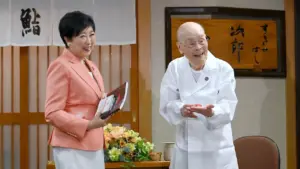
Federal immigration judges dismissed by the Trump administration are actively pursuing legal recourse while raising their voices in a rare public campaign to reclaim their positions. Since Donald Trump began his second term in office, over 50 immigration judges have been terminated, prompting a wave of appeals and public statements.
The affected judges argue that their dismissals represent not just personal grievances but broader concerns regarding the integrity of the immigration judicial system. They contend that their removals undermine the rule of law and compromise the fair adjudication of immigration cases. This initiative marks a significant shift in how federal judges, typically bound by silence, engage in public discourse about their professional situations.
Judicial Response and Legal Actions
As part of their efforts, the judges are filing appeals with the Federal Employment Appeals Board and other legal entities. Some have also reached out to the American Bar Association for support in their fight to reinstate their roles. This unusual public stance has been described by former judges as a necessary step to protect their rights and the integrity of the judiciary.
One judge, who spoke on the condition of anonymity, stated, “We believe these actions are not just about our individual cases but about maintaining a fair and impartial immigration system.” The judges emphasize that their experience and expertise are essential in ensuring that immigration proceedings are handled justly and systematically.
The dismissals have raised questions about the influence of political considerations on judicial appointments, particularly in immigration law. Critics argue that the firings reflect a broader trend of politicizing the judiciary, which could have long-lasting implications for the U.S. immigration system.
Implications for the Immigration System
With the rising number of removals, the impact on the immigration court system is becoming increasingly evident. The backlog of cases continues to grow, leaving many individuals awaiting decisions on their status in legal limbo. The judges’ absence exacerbates an already strained system, where timely and fair hearings are crucial.
Legal experts suggest that these developments could lead to significant changes in how immigration cases are managed in the future. “The judiciary must remain independent and insulated from political pressures to uphold the rule of law,” noted a prominent legal scholar.
The situation is also drawing attention from various advocacy groups, who are calling for reforms in the immigration court system to protect judges from political retribution. As this narrative unfolds, the judges’ campaign to reclaim their positions may not only reshape their futures but also influence broader discussions about judicial independence and immigration policy in the United States.
As the legal battles continue, the future of these judges remains uncertain, but their determination to speak out represents a pivotal moment in the ongoing discourse surrounding immigration law and judicial integrity.






